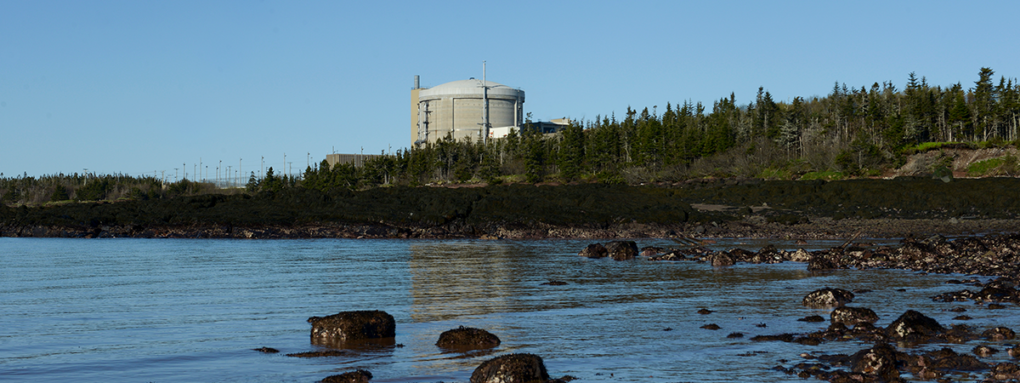Attention News Editors—Dr. Louise Comeau, Director of Climate Solutions, issued the following statement with respect to the latest shutdown of the Point Lepreau Nuclear Generating Station. She is available for interviews:
“The Point Lepreau Nuclear Generating Station is a costly and unreliable source of electricity relative to NB Power’s post-refurbishment expectations. The outcome of ongoing unplanned outages is that NB Power has higher capital costs than budgeted, is burning more dirty and expensive fossil fuels than it should, paying more carbon tax than it needs to, and buying high-priced power on the open market to meet winter peak demands. In other words, Point Lepreau is a factor in NB Power’s application for an 8.9 per cent rate increase starting April 1, 2023.
It’s time for the Energy Utilities Board to hold a hearing on the future of Point Lepreau.
NB Power’s most recent rate application to the Energy Utilities Board (EUB, Matter #541, document Q2 2023-24 NB Power GRA) reveals just how concerned the utility is about the state of the infrastructure critical to the safe operation of the Point Lepreau station. NB Power’s rate application (p. 102) notes: “The current ageing of station equipment, both nuclear and non-nuclear, has resulted in an increased challenge with respect to emerging equipment deficiencies. The rate of completed maintenance at the station has steadily improved year over year, yet the rate of equipment degradation has gradually exceeded this.
The leak in the instrument line reported by NB Power on Dec. 15, 2022 is part of the station’s ‘Primary Heat Transport System.’ In an appendix to the rate application (Appendix Q1), the utility notes plans for the “installation of a new Primary Heat Transport Pump Motor.” The document goes on to say that “the primary purpose of the Primary Heat Transport System (PHT) is transporting heat from the fuel in the reactor core to the Steam Generators (boilers.) This is done in two separate loops using two very large pumps per loop.
The leak occurred after the rapid shutdown of the nuclear generation station due to the failure of a unit station transformer. The heat transport line moves heavy water that contains low to intermediate radioactive waste. The result is a radioactive leak in the containment building.
As of the Nov. 7, 2022 EUB rate application, there were 109 days of outages at Lepreau with capital costs exceeding $152-million (Table 5.2.1). The utility plans to spend more than $23-million by 2023-2024 on outages for Lepreau repairs.
The Conservation Council calls on the Minister of Natural Resources and Energy to ask the Energy and Utilities Board to:
- Independently assess the non-nuclear and nuclear operations of Point Lepreau Generating Station based on actual experience, rather than NB Power projections, and estimate future potential costs to maintain and operate the plant (e.g., capital, operating and maintenance, debt charges, wholesale electricity, fossil fuel costs, carbon tax). The investigation should assess the projected costs to operate Lepreau, compared to alternatives supplying the same amount of electricity using in-province renewable energy, storage, and energy efficiency.
- Explore options for the phase down of Point Lepreau over the next five years, to be replaced by renewable energy, storage, energy efficiency, and interties in an Atlantic Loop. The options should include assessing the role of the Bayside natural gas station in providing peak reliability services, compared to non-fossil fuel options providing the same reliability service.
The results of the EUB investigation should inform the development of the province’s clean electricity strategy promised in its most recent climate action plan for 2022 to 2027 and due before 2025.
The provincial clean electricity strategy should make recommendations on the proportion of new investments and phase-out costs that should be paid for by taxpayers rather than ratepayers. The Conservation Council believes federal and provincial governments should pay for the renewal of our electricity system because of the long-term economic and social benefits from increased reliability, and the reduction of greenhouse gases and nuclear risks (operations and waste management).
New Brunswick needs to face facts. It needs to move off fossil fuels and nuclear. We can’t afford to wait any longer. Now is the time to prioritize energy efficiency to keep rates affordable and reduce energy poverty, while we invest in renewable energy, storage and interties.”
Links
- Read NB Power’s press release about the Dec. 15 shutdown at Lepreau
- Read NB Power’s 2023/24 general rate application to the Energy and Utilities Board
- Learn about the Conservation Council’s Atlantic Electricity Vision for an affordable, reliable and sustainable energy system
To arrange an interview, contact:
Jon MacNeill, Communications Director | jon.macneill@conservationcouncil.ca | 506.238.3539.

